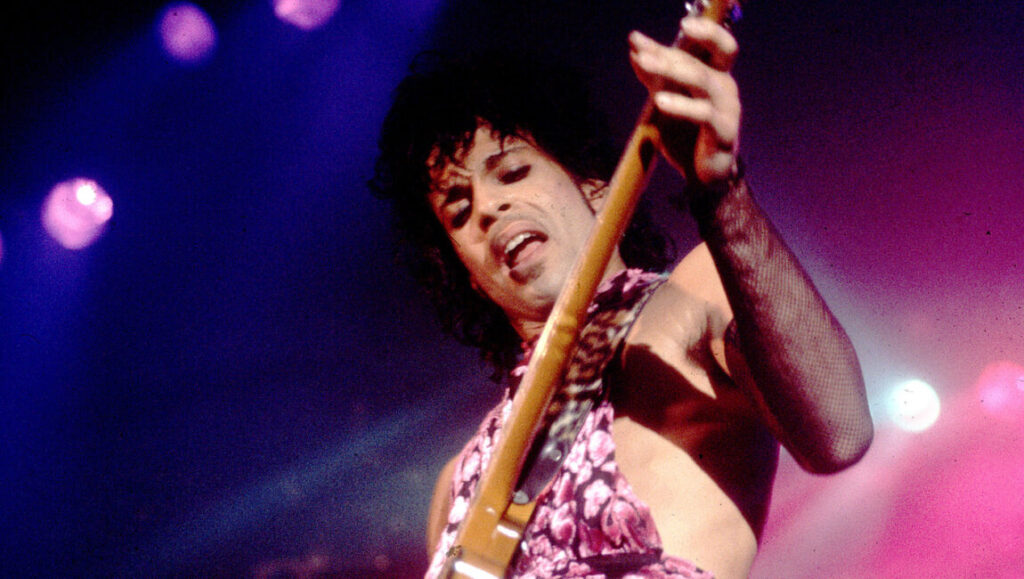Purple Rain begins with a funeral, but not with mourning: It’s a celebration — a gateway into new life and a new world, where “you can always see the sun.” It’s a repudiation of evil and of finality, in the form of wild abandon. It ends with a baptism; leading up it it are love songs so selfless and devoted that they take on a messianic resonance. The singer makes his Christological posture clearest in a song called “I Would Die 4 U,” which is self-explanatory. There are also scenarios ripped straight from the sleaziest of pornos: When the singer meets Darling Nikki in a hotel lobby, masturbating to magazines, it may not be quite as salacious as Prince’s raunchiest work, but you can still understand why Tipper Gore wouldn’t approve. What all of it bears witness to is a man with a pious heart and a dirty mind; a man who opens his album with wailing, Pentecostal fervor and ends it with a benediction, but isn’t ashamed to grind his way to ecstasy in between — nor indeed to cry out in abandonment and despair on “When Doves Cry,” as likely as not a song about his mother walking out on him. As music journalist Touré wrote, in his slender book about Prince, the singer’s three greatest influences are church music, pornography, and divorce, specifically that of his parents. That’s all here on Purple Rain — and Prince doesn’t so much blur the line between divine and erotic love, between romantic and existential despair, as he points out that it was never really there in the first place.
Purple Rain is melodic and direct, accessible enough to be a hit but teeming with ideas, gloriously defiant of boundaries, plenty weird but canny enough to end with a singalong.
Those aren’t the only barriers he breaks down here: This album is a fiery crucible of melody and soul, of sensuality and rock and roll grit. “Let’s Go Crazy” is part R&B vamping and part Stonesy guitar workout. “Take Me With U” is one of The Kid’s most effective forays into psychedelia, its main riff built from strings and finger cymbals. “Computer Blue” has a symphonic sweep — even if much of the symphony was relegated to the movie, left off the soundtrack — and “Baby I’m a Star” has the directness, the pumping fist and swiveling hips of that old time rock & roll. Prince gets weird with the arrangements when need be: At some point in the studio he dropped the bass line from “When Doves Cry,” thinking the initial performance sounded too mundane, and that’s vital to the song’s haunted vibe — yet it’s still catchy as hell, enough to scale the pop charts. Other times, he leaves well enough alone: His tortured wails are enough to sell his anguish on “The Beautiful Ones.” And while Prince is a guy who used to toss off triple LPs as though they were an afternoon’s work, and whose best albums (1999, Sign ‘o’ the Times, Parade) are known for their sprawl, Purple Rain is just 44 minutes. It still covers as much ground as any of them, but does so with precision and brevity. It was a calculated attempt to make the auteur a true superstar — without compromising his wild-eyed vision. Miraculously enough, it worked: Purple Rain is melodic and direct, accessible enough to be a hit but teeming with ideas, gloriously defiant of boundaries, plenty weird but canny enough to end with a singalong. Could a pop album possibly be better?
Part of Kicking the Canon – The Album Canon.


Comments are closed.